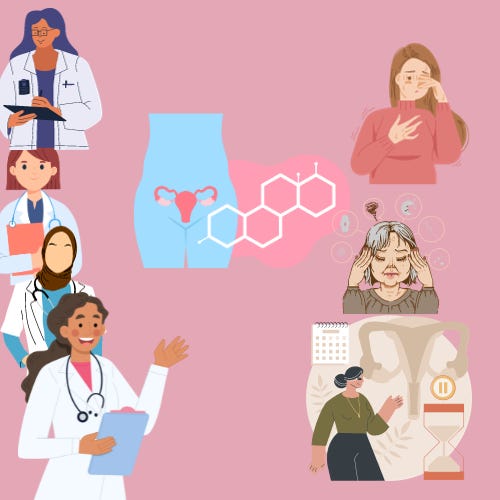A story
It's been about 7 years since I first attended a workshop by Dr. Sandra Kooij. I stumbled into that room by mistake, to be honest. It was a workshop for physicians. But something was going on because there were no seats, people were standing in the back, and you could hear a pin drop.
I am so glad I did because I think she changed my career trajectory. When she started talking about women, adhd, hormones, and treatment, it was new to me. Her approach to ADHD treatment, including adjusting stimulant doses during the menstrual cycle, seemed like voodoo. This practice was unheard of in Charlotte, NC, where I live, but in that room, it was standard. When I looked around, everyone was nodding in agreement. It seems there were doctors all over the world, who were treating women with the knowledge that hormones interacted with their adhd symptoms!
Kooij's passion and dedication have illuminated a new understanding of ADHD in women.
A few days ago, Dr Kooj published a new small study that showed some things most of us already know. But often, we NEED studies to prove what women already know. We need many studies before women are believed.
A study
Here’s a little about the study.
A study on nine women with ADHD found that increasing their psychostimulant dosage during their premenstrual period led to improved ADHD and mood symptoms with minimal adverse events. This highlights the impact of menstrual cycle phases on ADHD symptoms and medication effectiveness and is a significant step toward addressing women's specific needs in ADHD treatment.
Why does this matter to you?
What is going on here?
🧬 Complex interplay between hormones, mood, and ADHD.
🌺 Higher rates of premenstrual dysphoric disorder (PMDD), postpartum depression, and significant menopausal issues in ADHD women due to estrogen fluctuations.
🤝 Understanding unique hormonal fluctuations is crucial for supporting women with ADHD, a recently acknowledged aspect.
💡 The concept of adjusting ADHD medication and providing support to women with ADHD based on hormonal issues is rarely considered in many places.
Three things to do
For women seeking support for hormonal-related ADHD issues, it's crucial to be proactive. Here are three key steps:
Consider your hormones. Think about hormones and their impacts on emotional regulation ( which is an adhd related struggle), mood, and other parts of adhd.
Find Supportive Healthcare Providers: Seek healthcare providers who understand and are receptive to the nuances of ADHD support and how they relate to the hormonal life cycle. Women healthcare providers are often more attuned to these aspects.
Arm Yourself with Research: Equip yourself with research and findings from specialists like Sandra Kooij. Bringing this knowledge to receptive providers can be instrumental in getting the right support. You can find some on my page, including the week-old Kooj study here.
As an ADHD woman, you are, unfortunately, required to be informed, proactive, and supportive. This small study is a giant step in the right direction for women!
Consider joining the 2024 segment of Flourish for Women, a support and learning group—info about it at the link.







A doctor said to me ‘you (women if our age adhd) are the research group as we don’t know enough to help you.
My response’ I just want our data recorded’.
Thank you for the explanation, it solves a longtime mystery. I'm 62 and learned about my ADHD 1.5 years ago. Before menopause, I always had more migraines and mysteriously bad days before my periods.